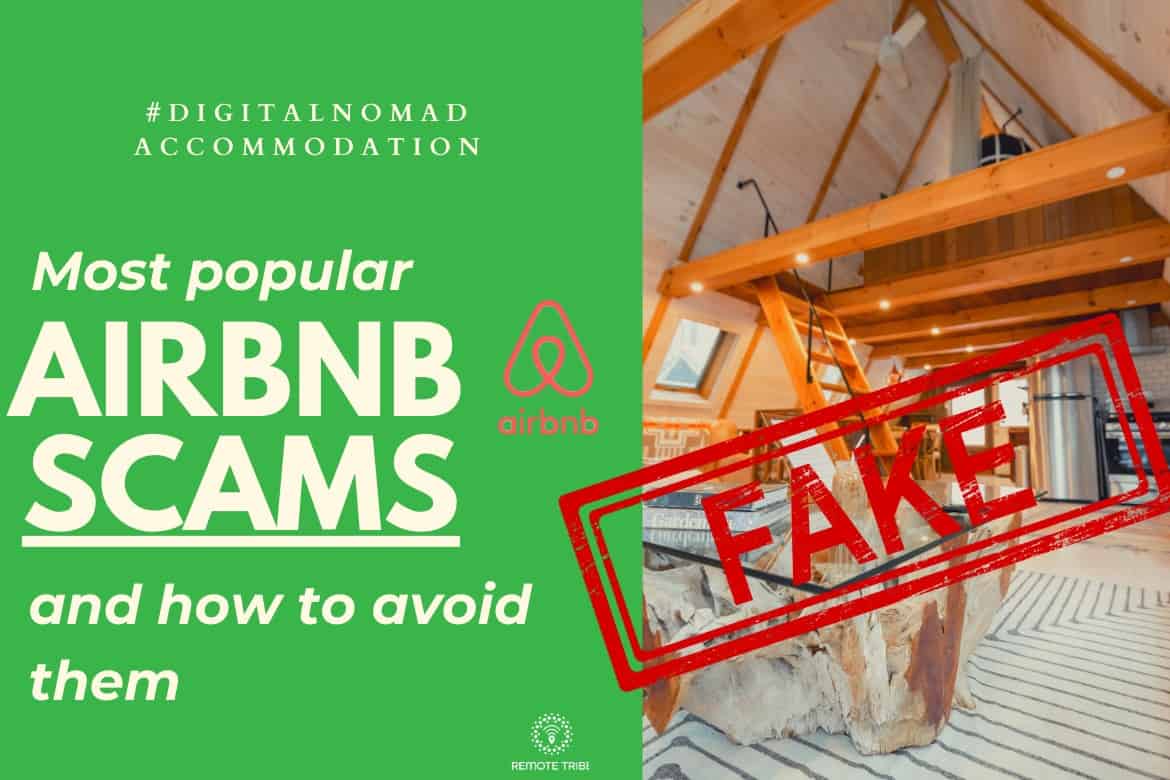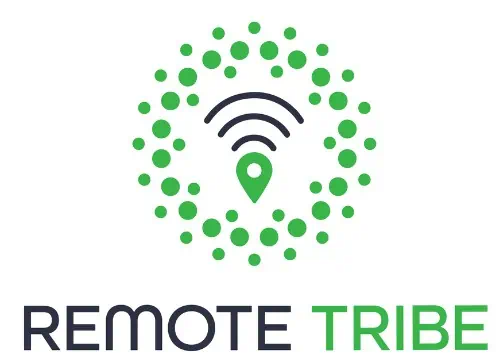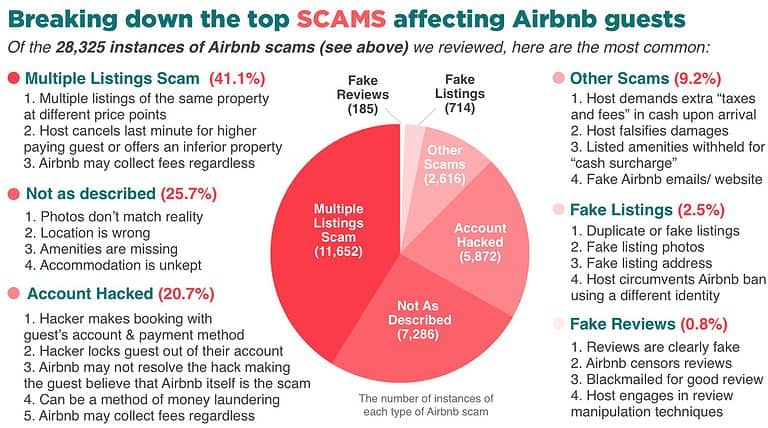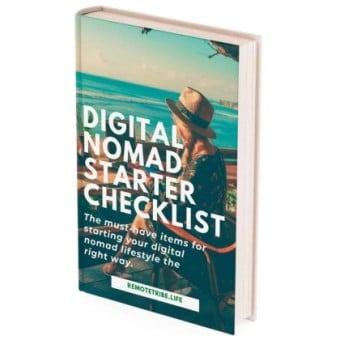The Ultimate Guide to Spotting and Avoiding AirBnB Scams – 9 Most Common Issues

Avoiding Airbnb Scams: Tips for Staying Safe as a Guest
I’ve booked Airbnbs all around the world over the last seven years and stayed in some very amazing and unusual houses, some clean and some dirty and not what I expected. But still, I didn’t have any issues with my bookings, and that’s mostly because I did pay attenton to a few details when booking. However, as we’ll see in this post, there are quite a few scams that some hosts run on their guests.
But before diving deep into them, let’s look back a bit at how AirBnB started.
It has revolutionized the accommodation industry by providing a platform that allows individuals to rent out their homes, apartments, or rooms to travelers. Not only is an Airbnb apartment frequently less expensive than a hotel room, but it also allows you to save even more money by making use of the kitchen and other amenities, allowing one to immerse even more into the local culture.
Prior to Airbnb, the only options for travelers were traditional hotels, motels, bed-and-breakfast establishments, or platforms like Couch Surfing, etc.
Moreover, Airbnb’s platform allows hosts to provide a more authentic and local experience for travelers. Hosts can provide recommendations for local restaurants, attractions, and activities, which can help travelers fully immerse themselves in the local culture.
In this post, I’ll walk you through some of the most typical Airbnb scams and show you how you can avoid them during your next trip if you decide to use Airbnb for your stay.
Before I begin diving into the common scams, let me confidently state that the Airbnb platform is typically safe. In fact, only 6.6% of all the complaints are related to scams, with customer service having the most complaints.
During my “career” as a digital nomad, I lived in hundreds of Airbnbs and I was never scammed. I did have issues with cleaning and facilities, but I was never scammed.
However, scams on Airbnb are real and can create a lot of headaches. Let’s jump straight into the nuts and bolts!
Types of AIRBNB SCAMS
1. Multiple Listings of the Same Property
How the scam works
This is by far the most common Airbnb scam reported in the set of tweets analysed by the source mentioned above. This is how the scam works:
The host provides comfortable accommodations at fair rates. Unknown to the guest, the home had been published twice (on Airbnb and maybe other short-term rental sites), once at a lower cost and once at a much higher one.
If the host has a new visitor book at the higher rate, the guest who booked at the smaller rate is cancelled.
Either you are left on the street, or the host provides an inferior property with no discounts.
Airbnb may or may not intervene or provide assistance on the visitor’s behalf, leaving you with few options other than to accept or be out the cost of the initial listing plus the cost of premium rates.
Airbnb may or may not intervene or give assistance on your behalf, leaving you with few alternatives other than to accept or be out the cost of the initial listing, plus the expense of premium rates for last-minute rooms elsewhere.
How to avoid
Please do not cancel your reservation. Instead, ensure that it is the host who cancels.
For host cancellations, Airbnb provides a full refund. However, if you cancel, you may be charged cancellation costs or even the whole amount of your reservation. If they contact you to inform you that there is an issue with the property or to request that you stay at a “similar” area that they also own, do not cancel for them.
Remove the price filter from your search to determine whether a property is advertised at multiple prices to prevent this fraud. If it is, do not reserve it.
Here are some examples of Multiple Listings Scam on Airbnb
Hey @AirBnB,
— Ben Simo (@QualityFrog) March 8, 2019
Two properties in different locations (on your map) with different hosts using the same photos and near identical descriptions? Also, both are listed as "entire place" but description says they aren't. #TrustAndSafety pic.twitter.com/Odyi9VS7N3
2. Deceptive or inaccurate property descriptions Including Fake Pictures

How the scam works
The second most frequently reported scam is properties that are misrepresented in order to make the accommodations look better than they are or have amazing amenities.
This is often accomplished through deception or manufactured (often taken from other properties) images of homes and amenities that no longer exist (or were never there).
Guests may arrive at a property that is radically different from the photographs and descriptions placed on the Airbnb platform, such as being considerably dirtier than promised or lacking luxury features such as a backyard hot tub or more basic necessities like WiFi or even running hot water.
In other cases, the photographs are outright fabrications. When guests arrive at the accommodation, they may discover that it is not at all what was depicted in the pictures, and they may have limited recourse or the possibility of a complete refund. If they are promised a complete refund, it may take weeks or months to get it.
Be careful, this scam can also include an incorrect address. The host will “conveniently” say that Airbnb incorrectly displayed the address and that they are unable to correct it.
How to avoid
To avoid inaccurate property description scams in the first place, do your research before arriving at your rental. Message your host for specific information about the amenities and cleaning rules, and observe their responses. You can also search the property address on Google Maps to see if the descriptions and images match.
To avoid this scam, go to the reviews part and search for the “Accuracy” category. Select “See All Comments” and then search for phrases like “pictures,” “images,” or “accurate” to identify particular negative reviews.
Moreover, if you suspect a listing, run a reverse image search on the photos on Google. Copy the photographs and use Google to see whether they’ve been copied on other websites or appear as listings for various houses.
3. AirBnb Account Hacking - And Stealing Funds From It

How the scam works
Another particularly concerning form of scam is where hackers break into an Airbnb guest’s account (and alter their password) and book repeated stays at potentially bogus rentals using the victim’s credit card, debit card, PayPal, or another connected payment method.
The fraudster will most likely own or have a relationship to the property they have rented, allowing them to successfully transfer money using the clients’ funds.
It’s possible that the hacker is also employing this strategy for money laundering. The Airbnb client who gets locked out of their account may have loose tousands of dollars. Many reviews stated that customer care was unable to assist them because they “couldn’t verify” the account holder, trapping them in a dreadful catch-22: they can’t receive assistance without their account, but they can’t access their account without support.
In addition, Airbnb is likely to have profited from the fraud in the form of booking fees. If Airbnb is able to resolve the issue, it may take weeks or longer for the visitor to obtain a complete refund, which may not include all booking costs.
How to avoid
A hacker’s most typical method of gaining access to your Airbnb account is to deceive you into giving them your login credentials and password.
They may impersonate a genuine host and email you a link to reserve their property. However, the link takes you outside of Airbnb to a similar-looking site that requests your information.
Always verify the website URL before entering your login credentials to secure your account and financial information. Ensure that the URL begins with “https://” and only contains “airbnb.com.”
If you notice an address that looks like “airbnb1.com” or “airbnb-bookings.com,” do not submit your information.
4. Fake Listings & Reviews
How the scam works
Occasionally, guests will arrive at a home that is obviously not the one advertised. Worse, the listing may not have existed at all. Scammers will take photos of properties from the internet and promote them as potential rentals, and the unwary guest will be disappointed after paying hundreds or thousands of dollars
At the time of writing, it was still feasible to discover fraudulent listings on Airbnb, implying that they had not validated all of its listings by 2021, despite promising to do so by the end of 2020. This makes creating bogus listings in some areas rather simple.
On top of this, there’s another scam inside the fake listing. Fake reviews are becoming an increasingly common issue on the home-sharing marketplace.
Fake reviews fundamentally hurt the review process’ legitimacy. How do you know what you and your family are stepping into if you don’t know how real the reviews are, or if they were placed there by a less-than-genuine host? Luckily, Airbnb has found a way to fix this. More details below.
How to avoid
To avoid this, during my travels and stays with Airbnb, I usually choose those properties with more reviews to prevent reserving a bad rental – it’s more difficult to falsify a massive amount of ratings.
Pay particular attention to the two, three, and four-star reviews as well. These are less likely to have been authored by friends or competition.
You may also load all of the reviews and use the search option to get the information that is most valuable to you.
Here are some examples of fake listings and reviews
– LifeHacker: How to Identify Scam Listings on Airbnb
– The Washington Post: How to spot fake reviews on travel sites
– Traveller: Airbnb are removing some negative reviews. Here’s why
5. Payments outside the platform
How the scam works
As an important rule of thumb, all payments and communications should take place via the Airbnb app or website.
It’s most likely a fraud if you receive a message from a host requesting you to pay by another (non-AirbnB) app, bank transfer, or another website.
Sometimes, the host can ask for a security deposit but only via Airbnb. Similarly to hotels, Airbnb allows owners to add a security deposit to the listing of their house, apartment, or condo. Although this security deposit is optional, beware that it has nothing to do with the Airbnb’s host guarantee. The Airbnb security deposit is used to further ensure that their property is protected in case of damages, whereas the Airbnb host guarantee provides a protection coverage value of up to $1,000,000.
How to avoid
If the host requests money outside of Airbnb, then this is a major red flag. Don’t fall for it. Also, I advise you to report the suspicious communication to Airbnb.
If you get the notification by email, make sure it is from one of Aribnb’s official email domains .
To avoid this fraud, take photos or videos of the property immediately after check-in and before check-out. Take photographs and share them with the host directly on Airbnb if you spot any damage upon arrival.
Finally, search for phishing email indicators such as misspelt words, grammatical problems, and threatening or urgent wording. If you are doubtful about an email, do not click on any links or give any personal information.
6. Incredibile Pricing - Too good to be true
How the scam works
Airbnb started off as a less costly way to stay in cities across the world. Renting an Airbnb apartment instead of a hotel in some areas might save you tens or hundreds of dollars each night.
How to avoid
When you find a fantastic offer on an Airbnb listing, make sure the owner has included images of all rooms, including bathrooms. To avoid fraudulent postings, use Google Maps to check the address or area. Finally, avoid exceptional discounts with a small number of reviews, they might be a red flag.
7. Illegal listings
How the scam works
Short-term rentals and home-sharing services are prohibited in certain locations, including cities like New York and Las Vegas. Airbnb short-term rentals may be prohibited in entire cities or individual areas, so you should be aware of that. Here is an article containing the cities where Airbnb is forbidden or limited.
For a variety of reasons, some municipalities have forbidden or restricted the hosting of Airbnb. One is that it takes away paying taxes that would otherwise be paid by lodgers (though Airbnb now collaborates with localities to collect such taxes), or that it takes away business from established hotels or B&Bs.
Others worry that because Airbnbs are not regulated like hotels, they may not meet safety and health regulations. Another big worry is that short-term visitors disrespect common spaces in multi-family buildings, make noise, and irritate neighbours.
How to avoid
You could GOogle “city name” + airbnb + “illegal” and see if there are a lot of search results for that city and if people had issues. If the problem is notorious, you’ll notice for sure.
8. False damage fees
How the scam works
Damage fees protect homeowners against renters who do not adequately care for the property. However, some Airbnb hosts are abusing this feature.
Sometimes you might get a message immediately after checking out about damage that you did not create.
If you refuse to pay, the host can escalate the situation to Airbnb, which can then use the security deposits to cover the cost of the damage or submit the case to a collection agency.
How to avoid
To avoid this fraud, take photos or videos of the property immediately after check-in and before check-out. Take photographs and share them with the host directly on Airbnb if you spot any damage upon arrival.
9. Hidden cameras
How the scam works
According to Airbnb’s stated policy, hosts can add cameras and security recording devices in communal areas as long as they inform guests about them.
Hosts are not permitted to monitor private areas such as toilets and bedrooms with concealed cameras or recording equipment.
Unfortunately, not every host will adhere to the guidelines. When travelling, knowing how to look for and detect hidden cameras is critical. This can also be an issue when staying in a hotel room.
How to avoid
Check everything hooked into plugs in private locations in especially. Cameras may pass for phone chargers, Wi-Fi routers, and lamps. Watch the video below for steps on how to sweep your flat or house when renting on AirBnB.
How To Avoid Airbnb Scams - Quick Summary
Only book with hosts who have received several positive reviews. This is one of the most reliable methods for figuring out whether or not a host is trustworthy.
Before booking, use Airbnb’s secure communications option to interact with the host. This will give you a better idea of who they are and whether you feel safe living with them.
Be aware of hosts who request personal information like your social security number or bank account information. Airbnb does not require this information, thus it is most likely a fraud.
Only use Airbnb to pay for your stay. If a host requests that you pay them directly, this is a red sign and may be a frau
If you have any doubts about the listing or the host, trust your instincts and look for a different place to stay. It’s better to be safe than sorry.
If you do end up being scammed on Airbnb, report it to the company immediately. They have a team dedicated to handling these types of situations and will work to resolve the issue as quickly as possible.
Airbnb Scam FAQ
If you have booked and paid for a reservation on Airbnb, but the host has scammed you, you may be eligible for a refund under Airbnb’s Guest Refund Policy. In order to qualify for a refund, you must report the issue to Airbnb within 48 hours of check-in and provide evidence of the scam. If you meet these requirements and are eligible for a refund, Airbnb will do everything it can to help you get your money back. It’s always best to try to resolve issues directly with the host first, but if that is not possible, you can contact Airbnb for assistance.
Airbnb hosts cannot view the reservation while it is in progress, and they cannot see any information on the visitors staying at their house other than the names of the people who made the reservation.
A host may, however, have security cameras or other monitoring systems on their premises. If this is the case, it should be included in the listing as well as the house rules. Always read the house rules before making a reservation to ensure you are aware of any surveillance equipment that may be in operation.
If the cameras are not disclosed and you find any, then the host is breaking the privacy rules and it’s an abuse. You have to report that to Airbnb immediately.
Yes, it is possible for Airbnb reviews to be fake. Like any online platform, there is a risk of fake or dishonest reviews being posted. However, Airbnb has measures in place to try to ensure the authenticity of the reviews on its platform. For example, the company may verify the identity of users and use algorithms to detect unusual patterns of activity that could indicate a fake review. Additionally, Airbnb allows both hosts and guests to report suspicious reviews, which can then be investigated by the company. It is always a good idea to read reviews carefully and consider the overall picture they paint of a property rather than just focusing on individual reviews.
Last Words - There will always be SCAMS with Airbnb so protect yourself!
AirBnb is a trusted platform for travelers and home-owners alike, but there are always going to be bad seeds who try to take advantage of the system.
By being aware of the most popular scams targeting AirBnb users (like the ones we covered above), you can protect yourself from becoming a victim.
Furthermore, following the simple precautionary measures we discussed will go a long way toward assuring a great vacation rental experience or a longer stay if you are a digital nomad. Use these suggestions to travel stress-free and avoid becoming another unhappy statistic.
Safe and happy travels!





One thought on “The Ultimate Guide to Spotting and Avoiding AirBnB Scams – 9 Most Common Issues”
Comments are closed.